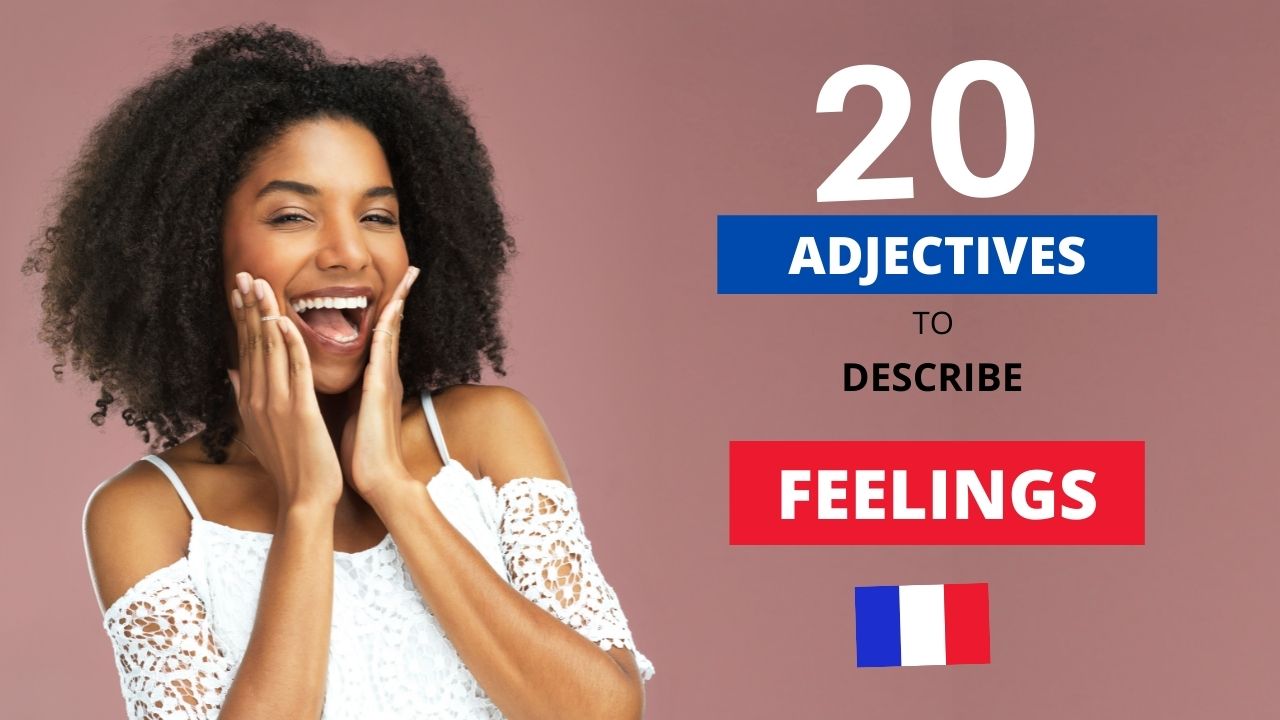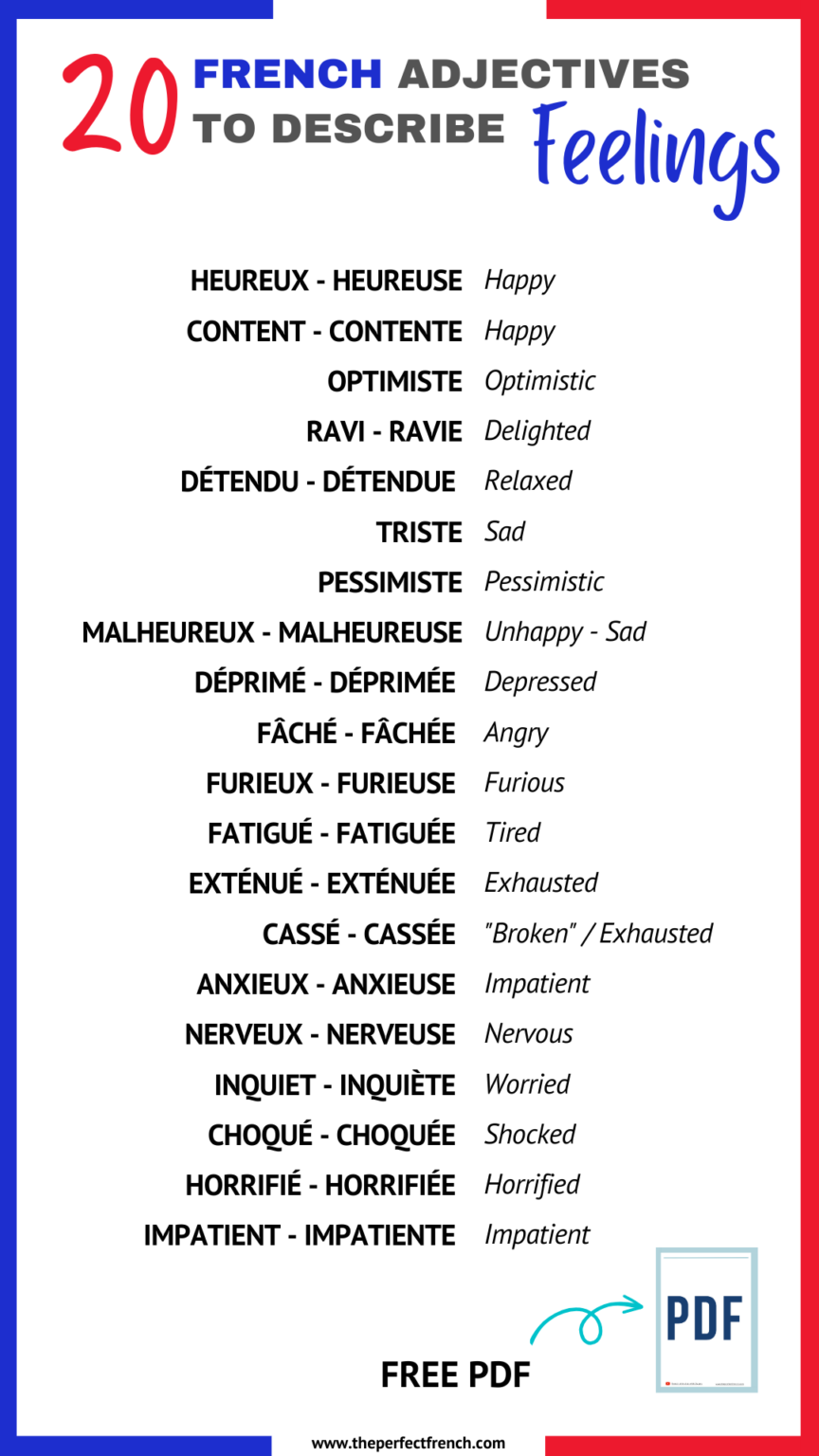Menu
Close
Let’s talk about feelings in French! 20 French adjectives to describe feelings! Do you know how to say that you are feeling tired, angry, or worried?
In this French lesson, we will learn 20 French adjectives to describe feelings. All adjectives are translated into English, of course, and they all include an example and audio.
French adjectives agree in gender and number with what they describe, which can be an object, a subject, or a person, …
Adjectives are either masculine or feminine when talking about gender and singular or plural when talking about numbers.
Here are how gender and number affect the endings of French adjectives, especially the ones we are going to see in this lesson:
eux – eux
t – ts
e – es
I – is
u – us
é – és
euse – euses
te – tes
e – es
Ie – ies
ue – ues
ée – ées
We can use a lot of different verbs to talk about feelings, but we will mostly use the verbs être to be and se sentir to feel.
Note: Sometimes, the adjectives will be followed by DE / D’.
Let’s review the conjugation of the two verbs in the present tense.
Je suis – I am
Tu es – You are
Il est – He is
Elle est – She is
On est – We are
Nous sommes – We are
Vous êtes – You are
Ils sont – They are
Elles sont – They are
Je me sens – I feel. I am feeling
Tu te sens – You feel, You are feeling
Il se sent – He feels, He is feeling
Elle se sent – She feels, She is feeling
On se sent – We feel, We are feeling
Nous nous sentons – We feel, We are feeling
Vous vous sentez – You feel, You are feeling
Ils se sentent – They feel, They are feeling
Elles se sentent – They feel, They are feeling
Elle est heureuse de te voir. – She is happy to see you.
Est-ce que tu es content ? – Are you happy?
Il faut rester optimiste. – We have to stay optimistic.
Nous sommes ravis du résultat. – We are delighted with the result.
Je me sens détendue. – I am feeling relaxed.
Elle est toujours triste. – She is always sad.
Elle essaye d’être moins pessimiste. – She is trying to be less pessimistic.
Pourquoi es-tu malheureux ? – Why are you unhappy?
Il est déprimé depuis quelques mois. – He has been depressed for a few months.
Ne sois pas fâchée ! – Don’t be angry!
Elle était furieuse d’apprendre la nouvelle. – She was furious to learn the news.
Je suis fatigué(e) de cette histoire. – I am tired of this story.
Nous étions exténuées après la randonnée. – We were exhausted after the hike.
Je dois aller dormir. Je suis cassé. – I have to go to sleep. I am “broken” / exhausted.
Ils sont anxieux quand ils sont seuls. – They are anxious when they are alone.
Aller chez le dentiste me rend nerveuse. – Going to the dentist makes me nervous.
Il est inquiet de recevoir ses résultats. – He is worried to get his results.
Elles étaient choquées de découvrir la vérité. – They were shocked to discover the truth.
Le juge était horrifié après avoir vu la vidéo. – The judge was horrified after seeing the video.
Je suis impatiente de voir mon chien. – I am impatient to see my dog – I can’t wait to see my dog.



2 Responses
Merci beaucoup Dylan. J’aime ce PDF. Je m’inscrire à votre chaîne YouTube.
Merci Jenny 🙂